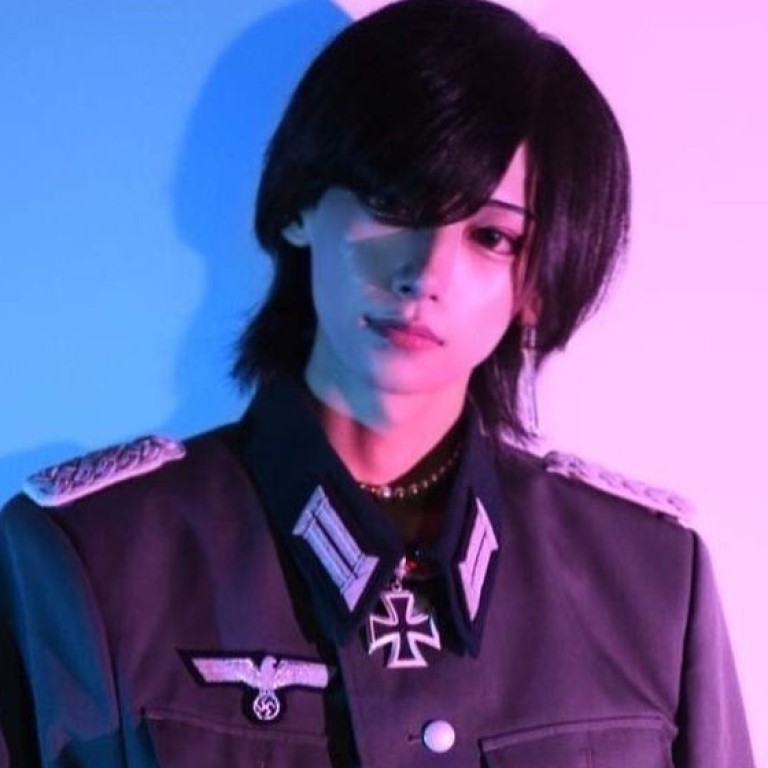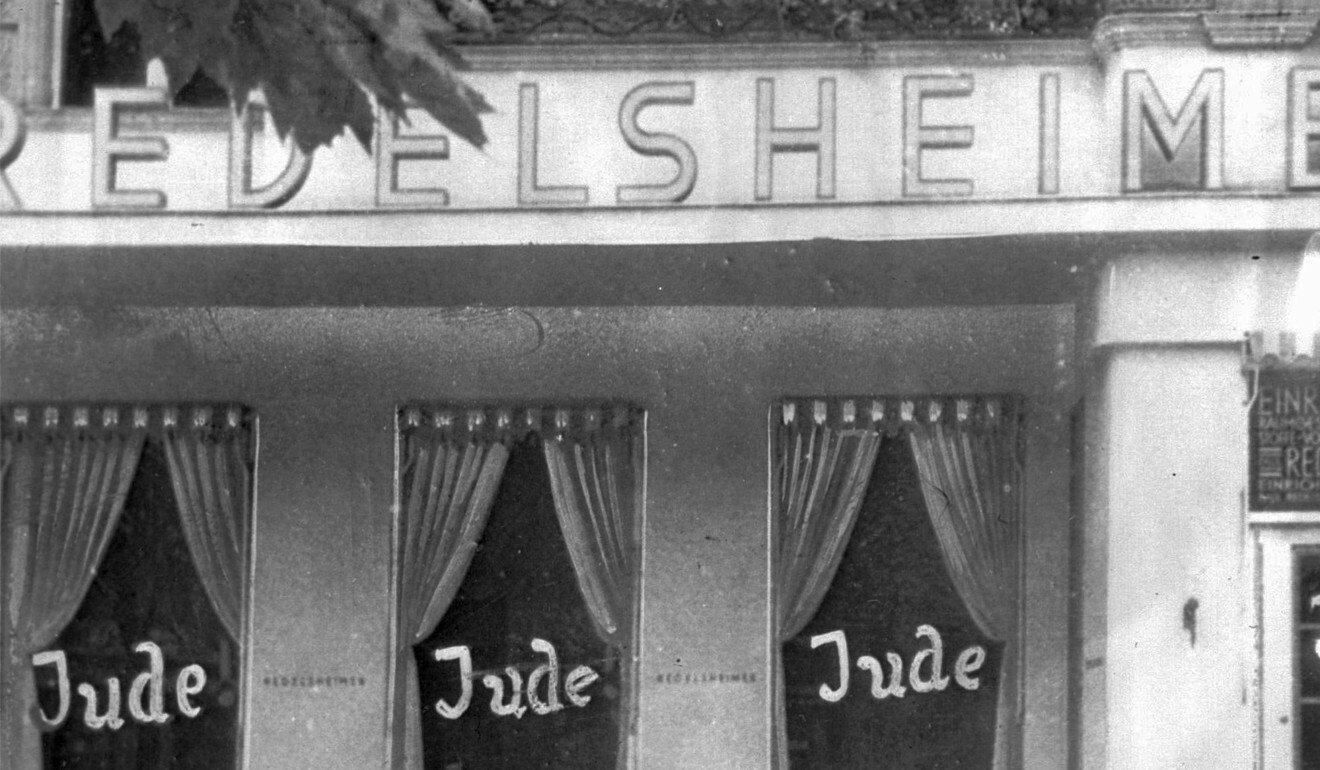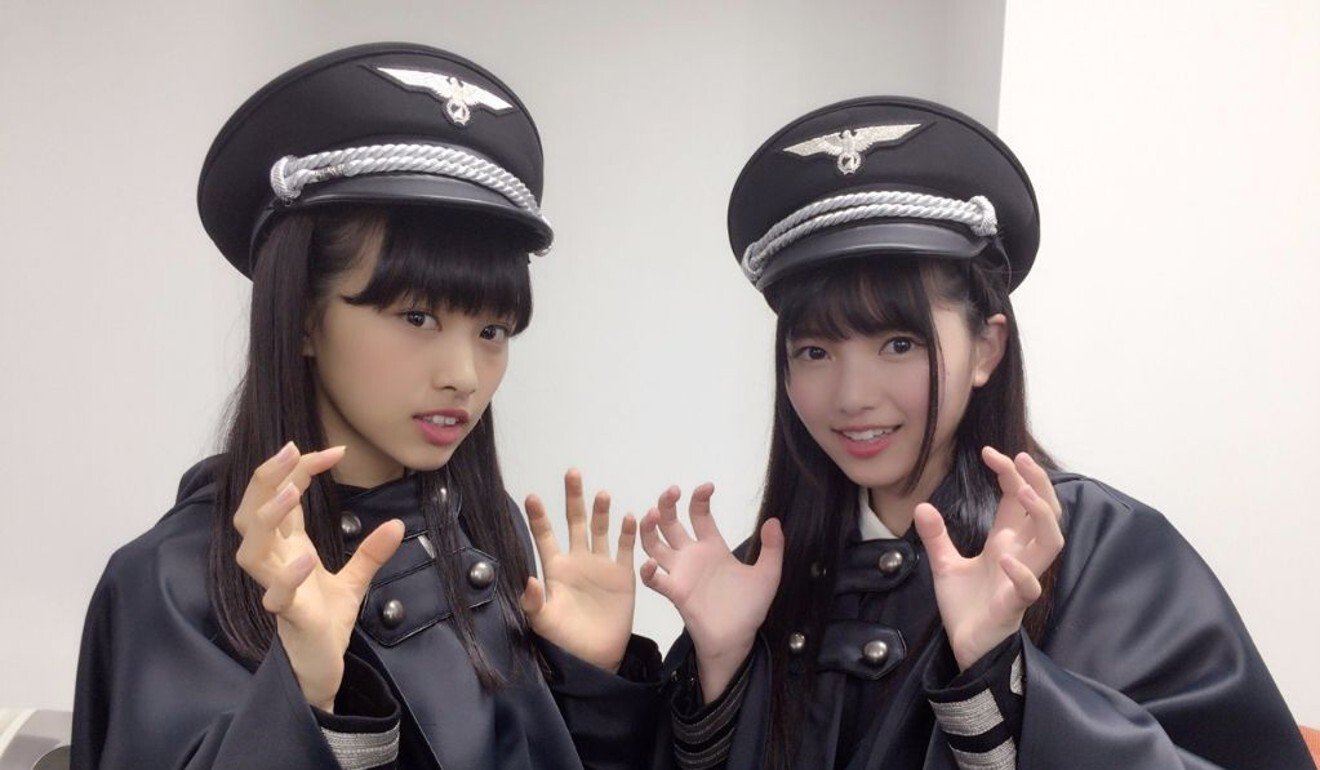
In Japan, why are Nazi-themed bars still opening?
- ‘Unfair’ opened on October 10 and closed two days later after swastika motifs and male staff in uniforms at Osaka venue proved unpopular online
- Not the first time fascist regime’s props used by Japan’s businesses; simple ‘ignorance’ of the Holocaust or ‘bad education’ blamed by some, but not all
And while the closure of the Osaka bar – named “Unfair” – and the removal of its website from the internet has been applauded, questions are being asked as to how the venue’s owners thought mimicking one of the most murderous regimes in history would be a selling point.
“It’s simply a matter of ignorance,” said Akio Yoshida, director of the Holocaust Education Centre, near the city of Hiroshima. “Far too many people in Japan simply do not know what happened in Europe in the last war, they don’t know that millions of people were persecuted and murdered.”
“I imagine they thought the uniforms would just catch the attention of potential clients and that it would be different or unusual. The hosts in the pictures, I am sure, were simply doing as they were told and didn’t know any better about wearing a Nazi uniform…”
In a statement, the operator issued an apology for a lack of “awareness” among its staff.
“We caused discomfort for a lot of people,” the statement added. “We will take your comments seriously and will work to make sure this sort of thing never happens again.”
02:25
From swastika flags to Hitler T-shirts: why Nazi symbols are common in Southeast Asia
For Abraham Cooper, associate dean of The Simon Wiesenthal Centre in Los Angeles, the apology is formulaic and too easy – and he has heard it countless times over the more than three decades he has been fighting anti-Semitism in Japan.
“There is absolutely no excusing it, again,” he said. “There has to be an expiry on the excuse that I keep hearing that ‘we don’t know anything about that part of history’ in Japan,” Cooper said. “That sort of excuse should have been thrown on the junk heap long ago.”

There have been a number of other cases in which Japanese people have displayed paraphernalia that could be considered as glorifying Nazism and are outlawed in other parts of the world.
A Japanese man who declines to give his name attends the annual memorial ceremony at Tokyo’s Yasukuni Shrine to mark Japan’s 1945 surrender wearing the uniform of a German soldier and with placards lionising some of Nazi Germany’s top commanders.
Japan considers dropping ‘manji’ symbol from temples to avoid confusion with swastika
In 2017, businessman Keiichi Morishita presided over a party for his employees on a beach in Chiba Prefecture, east of Tokyo. Photos were printed in a magazine showing banners and flags depicting the swastika and dozens of young women in skimpy uniforms that included peaked caps and long leather boots.
Morishita is founder and chairman of the Morishita Group, which operates bars and hostess clubs in Tokyo’s Kabukicho red-light district. Company insiders told the magazine that a papier-mache tank and a replica of a German bomber were also constructed as part of the decorations.
At a Halloween event in 2016, an all-girl pop group called Keyakizaka46 made headlines around the world after they took to the stage in uniforms reminiscent of those worn by SS troops. Sony Music, the label behind the band, issued an apology, saying, “We express our heartfelt apology for causing offence … because of our lack of understanding.”

In 2008, a member of another Japanese pop group nominated Adolf Hitler as a “great person” on a television programme and described him as “Uncle Hitler”.
Academics suggest the problem is more of a general lack of comprehension of history, and specifically the atrocities of the Nazi era in Europe, than bias against Jews.
“It’s simply a question of bad education,” said Yakov Zinberg, a Jewish man who left his native Russia for New York and is now a professor of East Asian studies at Tokyo’s Kokushikan University.
Indonesian cafe packs away Hitler painting after being forced to close
The fundamental problem, Zinberg believes, is that most 1930s and 1940s European history is ignored in Japanese schools as examining it would inevitably force the nation to examine its own actions during the same period.
“Japan wants to distance itself from what was happening in Nazi Germany and the atrocities and chooses not to talk about them because Japan was itself carrying out similar activities in China, Korea and elsewhere,” he said.
“And because young people in Japan are not taught what really happened in the past, I expect we are going to get more situations like the Osaka host club.”

